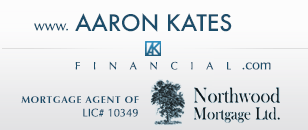Did you ever wonder if there is price fixing going on in major industries and / or sectors?
Perhaps there are monopolies in almost every industry one can imagine. Even when one company does not necessarily have a complete monopoly they may share the market with some other large companies to control the marketplace and fix the price for a product or service. Products and services do not need to always be tangible.
Domain names and hosting service providers are a form of non-tangible products and services. These virtual items, which seem only to exist electronically are very real. Nowadays internet advertising comprises the majority share of advertising space for marketing of products and services. Due to many consumers owning a smart phone or other cell phone, tablet or laptop, many purchases occur online. Goods can be shipped and delivered by courier or mail.
We are not here only dealing with technological products or services being bought online. Supermarkets sell non-perishable goods online and in some cases even offer free shipping of the purchased items. Other supermarkets may levy a small delivery fee, which may be waived if the order is greater than a set amount.
It matters if any type of commodity is bought or sold and even more so it matters who sets the price for it. In the realm of intellectual property; as is sometimes the area of trademarks and copyrights; domain names are big business. How large you ask? Trillions of dollars are spent yearly on domain names (website urls), which may consist of a few to many letters. That is correct, major money is being spent on words. Why has this phenomenon emerged as a supersized industry? Perhaps due to the purpose or function of the right domain name containing within it a great phrase or keywords, which are regularly searched for on the Internet.
Every opportunity to put products in front of consumers is worth its weight in gold. There are many domains that sell for more than bars of gold. Some domain names can fetch more than $20 million or even more. Whatever the market will bear it does so and does it quite well. Who regulates and monitors what is going in the marketplace of cyberspace?
There are registries that create domain extensions for domain names and registrars who sell the domain names and there is an oversight organization for Internet names. But who is really minding the store? Is the domain industry monitored as are stocks and commodities? A domain name is really a commodity, because its value can increase with the passage of time and due to the scarcity of the phrase being available on a popular extension. Domain names can initially be sold for as little as $1 and amass to be valued at over $1 million dollars or more. A commodity that can almost instantly appreciate one million times its value just by being purchased and containing the right phrase or combination of letters is a ‘hot commodity’.
Is it reasonable to allow this industry to be self-regulating? Registries can set the price(s) for their extensions and registrars can mark this price up. Moreover, domainers (investors who buy domain names to resell or flip) can buy a domain for a few dollars and them immediately list it for sale for thousands of dollars. Does the government, securities commission or any other organization monitor this industry for price-fixing or insider trading? An inside trade could occur in this type of scenario. A certain domain extension is set to released and registrars notice that certain words are being excessively searched. Thereupon realizing this phrase is popular the domain name is taken out of reach for the public to purchase and the domain is relisted as a premium domain. Who would notice? No one is minding the store in the realm of cyberspace!



